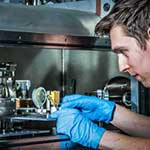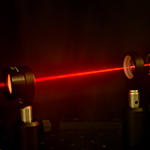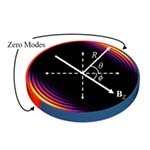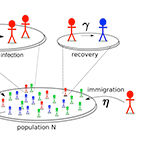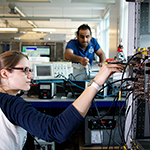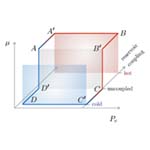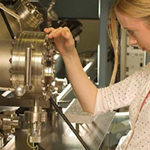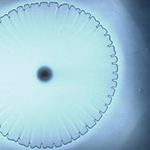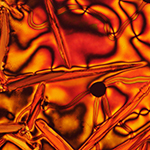Areas of expertise
Our Department’s researchers specialise in a range of theoretical and practical areas of physics.
These areas of expertise are applicable to all of our core themes, and are where much of our research is concentrated.
Browse our expertise below.
-
Accelerator physics
Our research spans high-energy colliders and light sources to future compact accelerators, exploring applications in fundamental particle physics and cancer treatment, supported by participation in numerous large-scale international collaborations.
Read more
-
Atomic physics
Our atomic physicists study fundamental interactions between electrons, lasers, atoms and molecules. These include electron excitation and ionization, high resolution laser photoionization, production and study of laser-cooled and trapped atoms, and production of ultra-high resolution electron beams for injection into future accelerators.
-
Biological physics
Our research in this area centres on biointerfaces, surface biocompatibility, the controlled release of plasmid DNA, and the effects of surface chemistries and topology on vascular cell growth and tissue structuring.
Read more
-
Condensed matter theory
Our research in condensed matter physics is closely linked to the work at the National Graphene Institute which largely concentrates on 2D materials.
Read more
-
Complex systems and statistical physics
Our interests focus on the application of techniques from statistical physics and nonlinear dynamics to study complex systems.
Read more
-
Condensed matter physics
Our research in this area covers nanoscale and mesoscopic materials (graphene being a noteworthy example), metamaterials and quantum fluids and solids.
Read more
-
Experimental nuclear physics
Our researchers have a long and well-established history in nuclear physics research, starting with the pioneering experiments of Ernest Rutherford.
Read more
-
Non-equilibrium quantum systems
Our work is on the theory of open quantum systems, with an emphasis on developing new methods applicable beyond standard approximations. Applications range from thermodynamics to solid-state quantum devices and molecular systems.
Read more
-
Particle physics: experiment and theory
Our researchers are active in many areas of physics research, both theoretical and experimental, detector development and e-Science.
Read more
-
Photon physics
Our research programme covers areas as diverse as advanced semiconductor structures for new sources of low energy lighting, the physics and chemistry of quantum dot solar cells, medical and biological uses of lasers, and fundamental studies of atomic and molecular physics.
Read more
-
Physics of fluids and soft matter
Our fluids and soft matter research is primarily concerned with experimental and theoretical studies of the physics of fluid flows.
Read more
-
Soft matter: liquid crystals
Our soft matter experts are primarily concerned with experimental studies of the physics of liquid crystals: from self-assembly and order to pattern formation, electro-optic phenomena and device optimisation.
Read more
-
Theoretical nuclear physics
Our nuclear experts' work ranges from low-energy nuclear structure to the frontier where nuclear and particle physics overlap. We focus on 'fundamental' approaches to nuclear physics, linking it to quantum chromodynamics, and have particular expertise in the areas of effective field theory and microscopic many-body theory.
Read more

